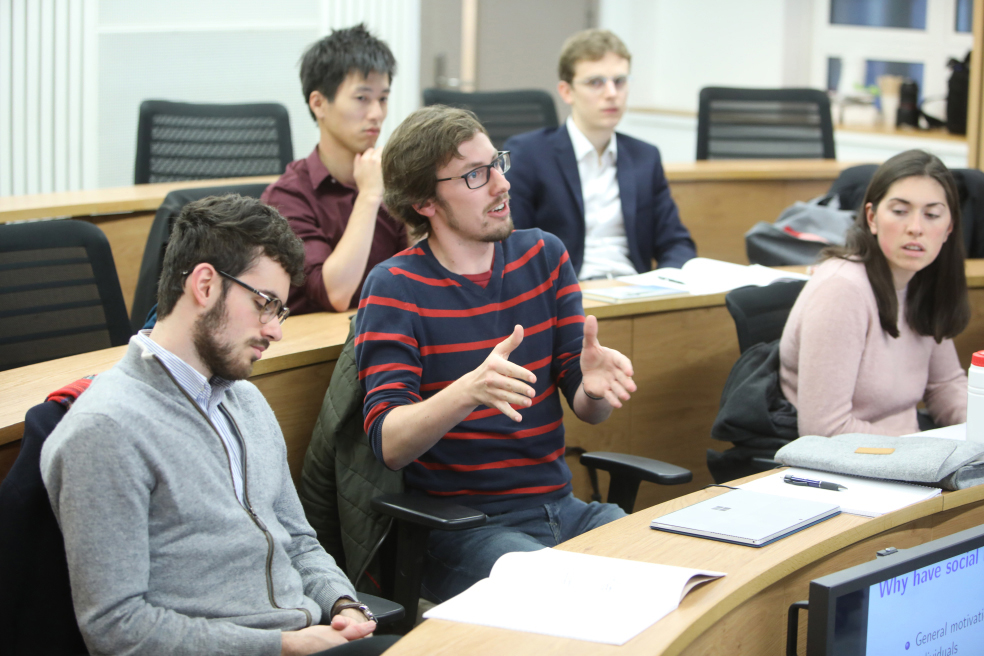LSE’s prestige as one of the best academic institutions in the world is undisputed. So it’s only natural that a lot of excitement and anxiety go into the idea of attending the School. And in case you’re an international student, this can be quite overwhelming. In the midst of dealing with visa application forms, accommodation searching, and getting everything ready for your arrival in London, it’s fair to say you won’t have much time to think about the nitty-gritty institutional details about the teaching style of LSE. And that’s understandable. This is not meant to alarm you, only to indicate that, as you might have already imagined, being a student at an institution like LSE might differ from what you are used to.
As an international student myself, I can only speak for the differences between LSE’s teaching style and my country Brazil. But I’m aware that assignment types and assessment guidelines can vary significantly across the world. For starters, the first difference I noticed coming to LSE was how most taught master’s programmes only last a year, whereas in Brazil they usually take up to two years. Also, academic years in the UK are roughly split into trimesters (or terms), while in Brazil the division is around academic semesters. This might seem like a minor detail, but it can substantially change your whole pace of studying.
But the biggest difference I found coming to LSE was how courses are split into lectures and seminars. For the lectures, the class convenor will usually give a general overview of a specific topic. Seminars are made up of smaller groups of students who attended the lecture and get the chance to engage in discussions about the lecture topic with both fellow classmates and the seminar instructor (who might not be the lecturer depending on the size of the class). Lectures and seminars are usually based on appointed readings to provide students with a theoretical grounding. This way, students are encouraged to more actively engage with the learning experience of each week’s topics.
But this way of teaching is very different from what I was used to. In Brazil, professors have the flexibility to minister their courses as they wish. What this means is that courses in Brazil differ greatly from one another, with some professors choosing to base their teaching on lectures alone; others, on asking groups of students to assist them in giving the lecture each week; and those who prefer the structure of seminars. Thus, it took me some time to understand the strict lecture/seminar divide at LSE. So if this teaching style is also new to you, please bear in mind that you will also have to sign up to the lectures and seminars. And in the case of capped seminars, this might happen on a first-come first-serve basis, so make sure you’re early to choose the seminar group that best fits with the rest of your weekly schedule.
As for the differences in relation to assignments, professors in Brazilian academic institutions also have the liberty to choose how they assess students enrolled in their course. This means that students can be assessed through oral presentations or exams, by taking several quizzes throughout the semester, through a general test at the end of the course, or by developing a project related to the course content. At LSE, students’ assessments are based on formatives and summatives. The former are an opportunity to test writing skills and get a grasp of what to expect for the latter. The grades students get from formatives don’t actually count toward their final mark. They are more like constructive feedback in helping them prepare for the summative, which is usually a 3,000-word essay on a given question. It can be quite stressful to have your whole mark depend on a single essay, especially when one’s used to more flexible assessments. So make sure you take your time to prepare accordingly in order to submit something you feel confident about.
Overall, the benefits of LSE’s teaching style is that students are assessed equally, based on strict guidelines presented by the School well before the deadlines. Different from more flexible teaching environments, LSE ensures that students aren’t subject to any type of bias when being assessed. This means that they might not have access to different teaching and learning methods, but they can rest assured that the School will provide them with all the tools they’ll can possibly need to thrive.





